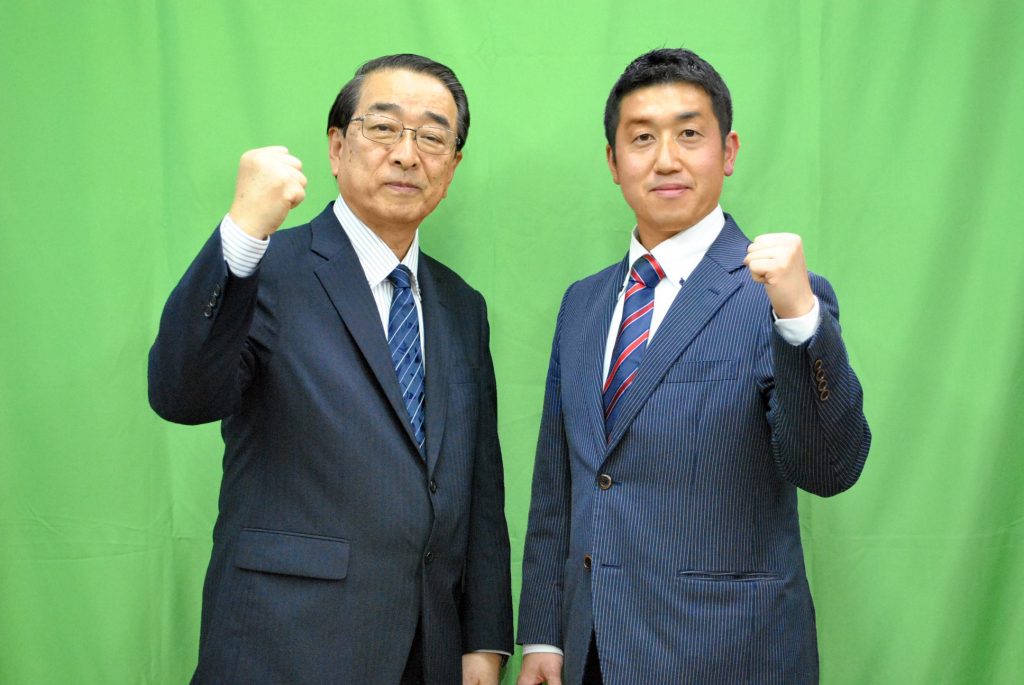Martial Arts Philosophy(Takashi Katada) x Philosophical Top Management(Terry Terada)
Profile of Terry Terada
Executive Officer of Casio
Chairman and CEO, CASIO USA
Chairman and CEO of CASIO Canada
General manager of Casio
2.5D Business Manager
General Manager of CS Planning Department
Deputy General Manager of the CASIO Mexico
President and Representative Director of CASIO Marketing
President and Representative Director of CASIO Polima
Purpose for Yamanashi Gakuin University Students
Learn “Budo” and “Management”, both philosophies, to learn the heart of leadership and prepare for the journey into society.
Learning “Philosophical Top Management” will dramatically change your life.
Reaching this point of change is the “secret” of life.
The purpose of listening to the seminar is to learn the “secret”.

Lastly, we give lectures for the students of Yamanashi Gakuin University. I published a book, made a 5-minute promotion DVD and a lecture DVD, and with the ability to innovate and not imitate others, I can make a change in the university, and if we can continue to develop, we will have a strong leader from the students of the University of Yamanashi.
Internship
I have built a friendly relationship with the governor of Yamanashi Prefecture, the mayor of Kofu, and many company presidents of local businesses and helped many students get a job through internships.

I believe that many foreigners are impressed by Japan’s safety, cleanliness, highly developed public facilities and beautiful nature and their conveniences and benefits, when comparing it to their home countries.
The number of foreign tourists in Japan reached 10 million in 2013, exceeded 24 million in 2016 and continues to grow. Among them is a high number of people who get fond of Japan and start a new life there.
Accompanying this trend, the number of employed foreigners as well continues to grow each year and is now reaching a record high of 1 million. But Japanese working environment and communication is troubling many foreign employees and leads to a high turnover rate. There are various reasons for this phenomenon, such as a lack of trust regarding work, a strong tendency towards isolation of foreigners and the unacceptability of showing one’s true self, especially at the workplace.
Japanese history already shows that Japan is highly racially homogenous. As already evident from the usage of the term ‘foreigners’, non-Japanese are often treated as outsiders. There are several examples for this, but two of the most common ones are reading between the lines and distinguish between real intention and what is actually shown to the public.
However, it is indispensable for Japan as a place to live and work and the Japanese labor market to change. If Japanese do not start learning from these ‘foreigners’ about for example their rules, manners and lifestyle, it will not be possible for Japan to thrive and prosper in the future.
Japanese birthrates have and will continue to decline which will lead to an ever faster aging society. The resulting labor shortage will significantly weaken Japan’s economic power and eventually lead to a higher number of immigrants.
Japanese companies are praised around the world for their high-level technology and the many excellent small and medium-sized enterprises are to be recognized. But Japan is facing a lack of people with a global mindset. I believe that for Japan to build a strong network and enjoy a leadership position in our globalized, English-speaking world, employees with the necessary negotiation and communication skills are essential.
In addition, modern day Japan is facing a movement from rural areas to the big cities such as Tokyo. Lack of work appears to be one of the main reason. This turns into a vicious circle with too little work in rural areas, therefore many people moving to Tokyo, and due to labor shortage, companies not being able to grow and because of this no new jobs being created.
Further, a mindset of ‘big companies offering more job security’, many highly skilled graduates start working for these large companies instead of choosing small and medium-sized enterprises.
But these, with a number of 3.85 million, make up 99.7% of Japanese businesses. Large companies, with 11 thousand, only account for 0.3%.
Yamanashi, the prefecture in which I currently live – even though next to Tokyo – is quite rural. Yamanashi’s economy is made up only of small and medium-sized companies. These smaller businesses have especially one big advantage compared to their bigger counterparts: Employees have the opportunity to understand managers’ concepts and intentions, simply due to the closeness that cannot be found in large companies
Apart from that, compared to city areas, rent is remarkably lower and even groceries are often cheaper than metropolitan regions. Moreover, overly crowded trains which are can be seen in foreign television cannot be found in more rural areas. Additionally, especially people enjoying outdoor activities such as camping, fishing, cycling, ski and so forth will find the everyday life surrounded by nature highly attractive.
For these reasons, I stand in daily interaction with presidents of local companies, continuing to promote the region. These companies aim for active participation in our globalizing society and offer internships to foreign and Japanese students. I believe that by these internships more foreigners will come to Yamanashi and that this can become part of the bridge between Yamanashi and the world.